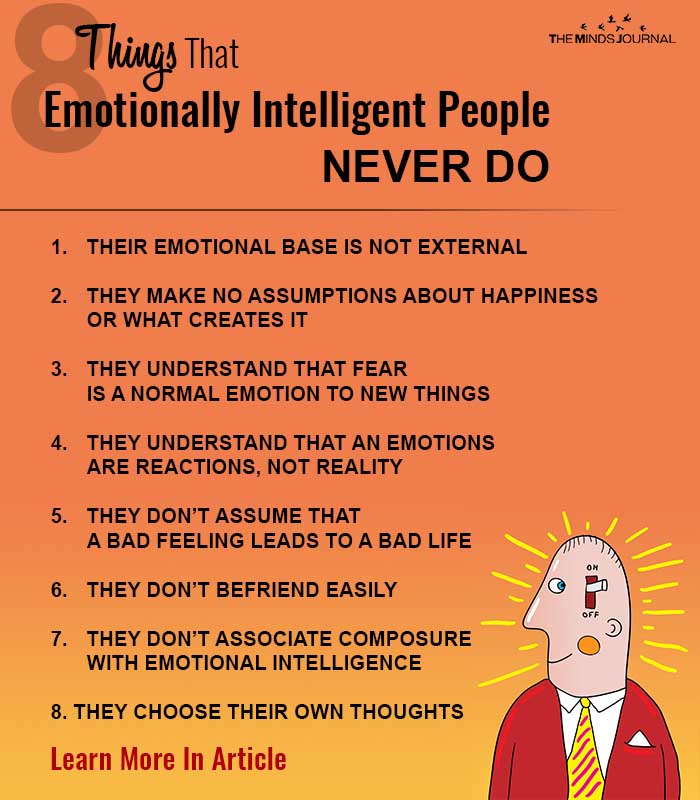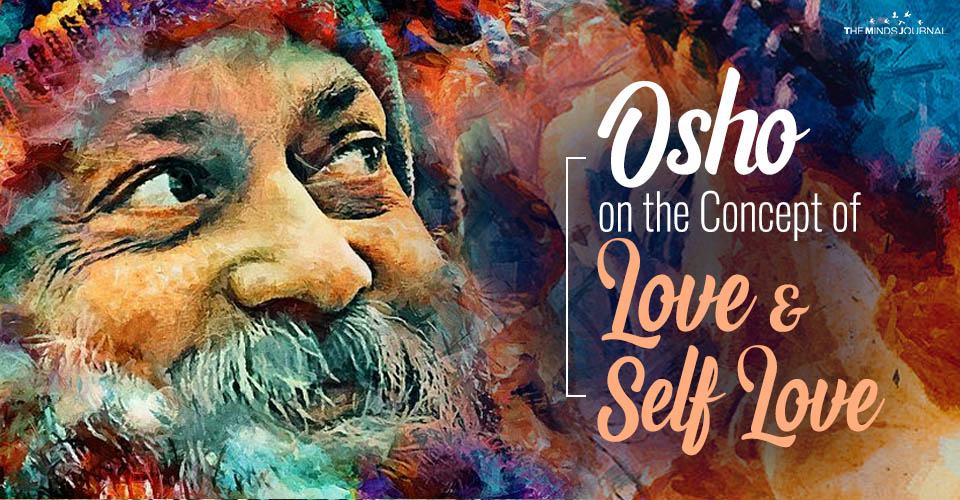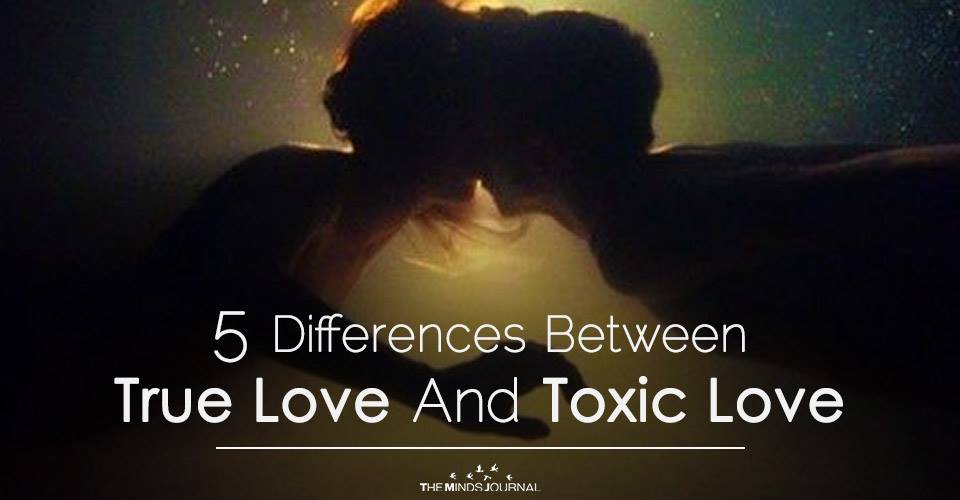Emotionally Intelligent people never do these tricky things.
Emotional intelligence or EI is the ability to understand and manage your own emotions, and those of the people around you.
In life, emotions can be like the winds that blow us off track on the path to achieving whatever it is that we want to accomplish.
That is why, in my opinion, of all of the life skill that a person can possess, emotional intelligence is as important as mental intelligence when it comes to being successful.
That being said, emotional intelligence is tricky.
Do you want to improve your emotional intelligence? To know how you can improve your EI… Read on to… 12 Ways To Improve Emotional Intelligence Through Self Care
It is all about keeping your emotions in check, instead of letting them rule your life. You have to understand your emotions as a tool, and not as a burden. Again, this is all easier said than done, so here are
8 things to keep in mind that emotionally intelligent people don’t do.

1. THEIR EMOTIONAL BASE IS NOT EXTERNAL
One key to emotional intelligence is understanding that your feelings are not someone else’s fault. They are your own. You can’t expect people to always know how you will emotionally react to something, or for them to even care for that matter. An action by someone else may make you feel a way that they did not intend, so you have to realize that it is YOUR responsibility to handle the emotional response correctly.
2. THEY MAKE NO ASSUMPTIONS ABOUT HAPPINESS OR WHAT CREATES IT
The funny thing about happiness is that it is an infinite value. When we think about happiness, we relate it to experiences in our past, but that doesn’t mean that we can’t achieve a level of happiness greater than anything we’ve ever known. Therefore, emotionally intelligent people understand that moving forward and experiencing new things is the only way to achieve anything resembling “true” happiness.
3. THEY UNDERSTAND THAT FEAR IS A NORMAL EMOTION TO NEW THINGS
Fear, for the most part, in new experiences is totally normal. People are often way too quick to assume that just because something scares you that it is a bad thing. Being reckless and being fearless are two different things. Fear is just a way for your mind to make you consider what it is that is going on, so keep it in check.
Are you an emotionally intense person? To know more, read on to… 5 Traits Of An Emotionally Intense Person: Are You One?
4. THEY UNDERSTAND THAT AN EMOTIONS ARE REACTIONS, NOT REALITY
Understanding that how you feel is not the defining characteristic of a situation is probably the most important aspect of emotional intelligence. It is also the hardest to realize in the heat of the moment. Understanding that your emotions are what they are for a reason that is specific to you is important.
5. THEY DON’T ASSUME THAT A BAD FEELING LEADS TO A BAD LIFE
One very obvious sign of high emotional intelligence in understanding that we can’t all be happy all of the time. Just because you are having a bad day doesn’t mean that your life is falling apart. It means that a certain number of factors have conspired together to make you have a bad day. Happiness is a choice, but that doesn’t mean that we have to choose it every time.
6. THEY DON’T BEFRIEND EASILY
One of the most important things in life is who you choose to surround yourself with. Being aware of how other people make you feel and why it is critical to making good choices when it comes to friends. Again, much like all aspects of emotional intelligence, this isn’t something that happens overnight.
7. THEY DON’T ASSOCIATE COMPOSURE WITH EMOTIONAL INTELLIGENCE
Just because you are emotionally intelligent, that doesn’t mean that you don’t occasionally lose it. We all do. Being emotionally intelligent doesn’t mean you are an emotionless robot. It just means that you know how you feel, why you feel that way, and deal with it accordingly.
8. THEY CHOOSE THEIR OWN THOUGHTS
Emotionally intelligent people are often seen as stubborn. This is because they own their thoughts and emotions equally, with a deep understanding of how others influence their emotions. It’s not as much stubborn as it is picky.
Written by Justin Gammill
Originally Published on – IHeartIntelligence
















Leave a Reply
You must be logged in to post a comment.